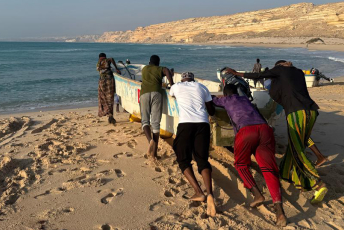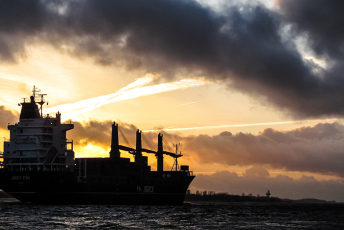Today, 5 June, marks the first International Day for the Fight against Illegal, Unregulated and Unreported fishing (IUU fishing), which aims to raise awareness about Sustainable Development Goal 14 (SDG 14) on the conservation and sustainable use of oceans, seas and marine resources.
Over one billion people worldwide depend directly on fisheries for their livelihoods and protein intake. Marine fisheries are also a key component of the much-talked-about ‘blue economy,’ and, according to the World Bank, contribute over US$270 billion annually to global GDP.
But this is threatened by illegal fishing. The United Nations Food and Agricultural Organisation estimates that IUU fishing represents one fifth of all fish caught worldwide. This is leading to a depletion of stocks, with some species even facing extinction as a result.
SDG 14 calls for an end to IUU fishing by 2020. It aims ‘to restore fish stocks in the shortest time feasible, at least to levels that can produce maximum sustainable yield as determined by their biological characteristics’. Greater fisheries sustainability could also generate jobs and greater revenue; and contribute to global food security.
Beyond its ecological and developmental implications, however, a much-overlooked consequence of IUU fishing is the increasing transnational criminality it attracts. Unemployed or impoverished fishermen, in particular, are easily recruited to use their skills and equipment for maritime-based crimes.
Many voluntarily join transnational criminal networks to transport drugs or arms by sea, while others are forcefully sent on fishing expeditions on the high seas and used as slaves on trawlers, particularly across Southeast Asia.
The poaching of endangered fish species is also on the rise, including the well-reported overexploitation of the Atlantic bluefin tuna, and abalone in Southern African waters. Although the fisheries sector is fairly well-regulated, with over 70 legally binding or non-binding instruments globally, enforcement is a key problem.
This has provoked dramatic events between law enforcement and criminal groups. In Argentina, coastguards ‘shot and sank a Chinese vessel that was illegally fishing in its Exclusive Economic Zone’ in March 2016. South Africa detained and later released three Chinese vessels with 100 crew members in 2016, while the Gambia is resorting to private security to protect its territorial waters. China, the world’s largest consumer of seafood, is accused of fuelling this ‘global fisheries warfare’ to satisfy its national demand.
But transnational organised crime associated with fishing is not a new phenomenon. The United States Navy and Coastguard have known about ‘escalating conflict over fishing’ for several years. In response to this emerging threat to global and US national security, the National Defense Authorization Act on 19 September 2017 invited Congress to include the fight against IUU fishing in the navy’s mission.
Increasingly, experts are looking at technology to combat IUU fishing. Countries with advanced technology, human resources and intelligence could lead the enforcement of global fisheries rules and regulations. Alongside others navies, the US could, for example, scale up existing maritime security partnerships to pursue and share information.
Countries in East Africa and the Gulf of Guinea regions, which are particularly affected by illegal fishing, are already benefiting from such partnerships. But for this type of partnership to succeed, they may have to agree to give full access to their territorial waters to foreign actors. While challenges are numerous, fish stocks are dwindling, and time is running out for SDG 14 to be achieved.
Agnes Ebo’o, ENACT Regional Organised Crime Observatory Coordinator – Central Africa, ISS







